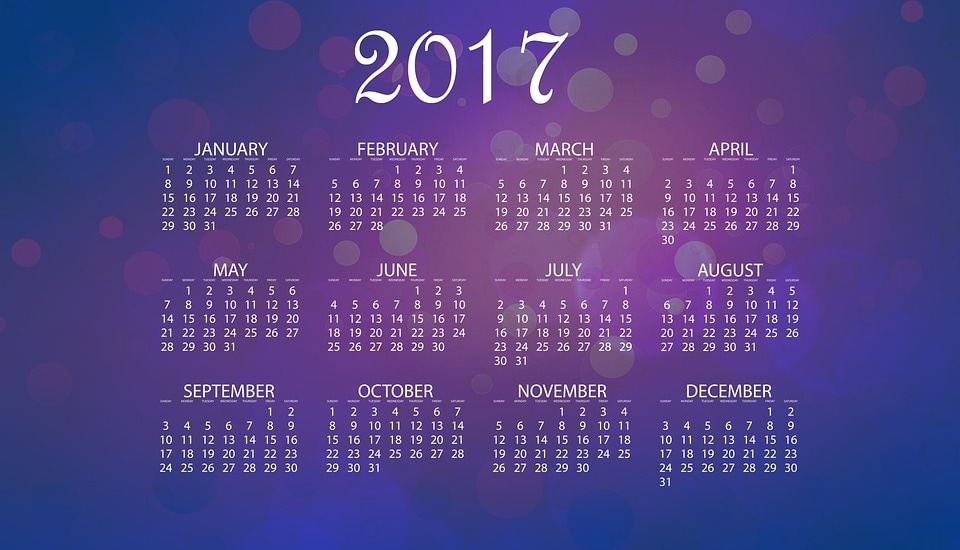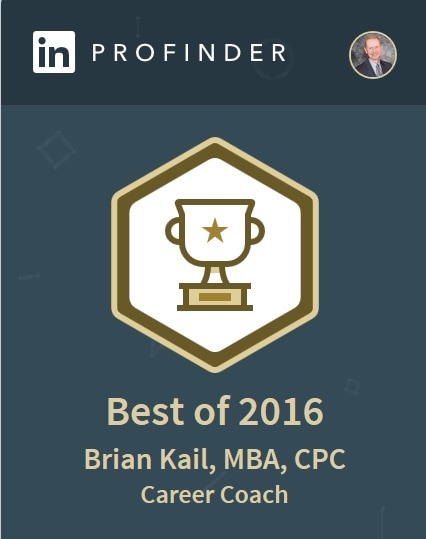- I had a request to share my thoughts around the length of time needed to complete a job search. In my mind, there are really two categories for job searches. The first type is a job search staying within your chosen field or career path. The second type of job search category is under the condition that you want to make a change in direction – break off from the career path you were on and strike out in a new direction. To keep length reasonable I, want to address just the first type of job search, that is, a search staying within your chosen career. For current purposes, let’s also assume that you are starting the job search with no previous foundation, such as a current resume. There are certain elements that will help to successfully land that next job, but it is not science. There are just too many variables such as health of the economy, demand for your particular skill set, and how well you do with interviewing. So, to provide an estimate of time that is needed for a successful job search is challenging. But I think I can provide a reasonable window of time to successfully complete a job search as being somewhere from 2 months, to 4 months. Although in unusual cases it can take less than and month, and on the other end of the spectrum may take longer than 6 months. If you have been looking for longer than 4 months, or even 6 months, don’t be discouraged. Good things may yet be coming your way. To understand why I estimated a window of 2 to 4 months, let’s take a look at the components that are normally part of a job search, and how long it usually takes to produce them.
Resume: The resume is a foundational component of the job search. My suggestion is to have a polished resume before you even start informal conversations with recruiters. Recruiters will ask for a resume, and they will want one that is concise and up-to-date. I am assuming you may have some type of rough, or very old resume, and a lot of work needs to happen here. Before you start creating, or revamping your own resume, seek out good examples of resumes. To get started with some examples see…https://www.livecareer.com/resume-examples , and…http://www.financialsamurai.com/examples-of-good-resumes/ .Most people can type up a rough draft of a resume in a day or two. But this is not the one you want to send out for jobs. Start with a draft, then spend a few days going back to it, and tweaking it. A resume is not something you want to rush to complete. You want to live with it for a while. You also want to get feedback from some friends, colleagues, and professionals you trust. As you can see this process of producing a perfect, well-reviewed resume can take time. Plan on about a month to reach your final, perfect personal resume.
Engage Career Professional: I strongly recommend talking with a career professional before you start speaking with recruiters. A good career professional, such as a certified career coach, will help you in defining what makes you happy, and fulfilled in a job, and will help you focus your search so that you will be seen as a candidate that understands who they are, what they want, and what they have to offer. Remember a recruiter does not work for you – they (directly or indirectly) work for the hiring company.
Setting Job Criteria: This is where working with a career professional, like a certified career coach, or career consultant can help enormously. One big key in being happy in your next job is a decide on your job criteria, that is, what things are most important to you in your next job, documenting this, and weighting the criteria. This is a whole topic by itself. Suffice it to say this is an area where most people, even professionals need help. You will probably need to locate, and setup a couple meetings with a career professional to work this part through. You can do this part more or less in parallel with creating a final resume, but if you work through this part with a professional, which is what I suggest, this part will take 2 to 3 weeks. It could take longer if you have never worked through job criteria before, or if you are an open-ended person that takes more time to make career decisions.
Reach out to Recruiters: Prior to this step you really need to have your resume in a polished, perfect version. I really suggest having your job criteria matrix created as well, as recruiters most certainly will ask you questions around salary expectations, job location, size of the organization you want to work for, and other questions that helps them map you to a hiring company.
Applying: This is the process of seeking out open positions, and submitting an application. Almost all professional job applications are filled out and submitted online. They almost always ask for a resume – so you want to have perfect one ready to upload. They will often ask for 3 or more personal references, so have a conversation with 3 to 5 people you trust, and get their OK to be used as a job reference in advance. Most organizations send you an email that your application was received, so have a valid email address available. I suggest supplying a personal email account, not a company email address, as company emails may not be private and secure within your organization.
Networking: You can network with two kinds of people – ones that you have known for a while, and ones that you have recently met. This first group you people will be friends, relatives, and perhaps peers, and coworkers from previous jobs. The second group are recent acquaintances. An example of this second group might be members of professional organizations you have joined. They may also be members or visitors of career, or job seeking clubs. For a list in your area see meetup.com, or check your state job networking site.
Interview: There are some cases where necessary interviews can be completed in a week or two. This is usually when the hiring company is under pressure to make a hire. This can be a good thing for you. On the other extreme, I have seen multiple interview with various teams, including the hiring department team members, drag out over a couple months. You are almost guaranteed to have at least two interviews. In most cases with the company recruiter, and then a second with the hiring manager, and often the manager’s boss. The number, and formality of the interviews can be a product of the organization’s culture, and also the pressure they might be feeling to hire.
Accept Offer: Sometime after the last interview, if all goes well, the hiring organization will contact you with an offer. If you have done your homework in advance, you will have a pretty good idea if the offer, and position will work for you. Most companies allow time to discuss the offer with your significant other, and family. So normally you have a couple days to provide a final answer.
Set Start Date: Most companies expect you will need to give two weeks’ notice to your current management. Do allow at least two weeks before you start the new job. You may want to allow more time so you can have a mini vacation before starting work again.
Give notice: Standard notice to resign from a position is 2 weeks. If you have a management role, you may want to provide a longer notice.
In looking at creation of a perfect resume, and the process that normally takes place to be hired in a new position, you can see that this can take a number of weeks, even months. Once you have a polished resume, I suggest you meet with a career professional to help focus your needs, and your job search. Minimum engagement with a career professional I see as 2 to 3 weeks. Your job search needs to be refined before you reach out to recruiters, and start applying for jobs. Even if you get an offer from your first application, you most likely will have 2 or possibly more interviews to have. Plan for about 2 to 3 weeks for the interview process to complete. Once you have agreed to take the offer, you need to give at least 2 weeks’ notice of resignation to your current employer. In broad strokes if you add up the work that you need to do, including engaging with a career professional, and then add in 2 to three weeks for the interview process, and lastly add in 2 weeks’ notice to the time frame, I think you can see where the magic number of 2 to 4 months comes from. As with most generalities, there are exceptions. But if you need to estimate the time to complete a job search, one that stays within your chosen field, 2 to 4 months is a reasonable window of expectation.
Author: Brian Kail, MBA, CPC is a professional Career Coach, and Business Consultant. For me information see AscendProCoach.com
|
By request, I want to take up the topic of Job Interviews, and consider what topics to avoid. According to Urban Dictionary, TMI means “Too Much Information”. And avoiding TMI in interviews will be the focus today. TMI in the context of job interviews falls into too categories: 1) Personal information that is inappropriate, and 2) Information that is off-topic. Considering the topic from a hiring perspective, you want to avoid providing information that will block you from getting a job offer. Below is a list of topics that should be avoided in a job interview. Some may seem obvious, but bare repeating. There may be some items that may surprise you.
Belaboring Education: This is not to say you don’t mention your education at all. But my suggestion is to give a summary if asked about your education. Don’t belabor. Your interviewer might be a person that did not have the opportunity to go business school, graduate school, etc... Don’t rub salt in the wound. Also, in some quarters there can be a bias against too much education. So best not to dwell on your education. But do bring it up in summary if it helps you in getting the job. For example, if interviewing with a medical company, “…I completed my Master in Bio-Chemistry at Stanford…” Age: This is one of the more obvious items. The hiring market favors youth. If you look younger than you really are don’t betray this by mentioning age. This is especially true for applicants in their 50’s or 60’s. Reasons for Leaving your past jobs: This question may have already come up on your job application. But if you made the cut to make it to a job interview, there is no point in bringing this up during the interview unless your interviewer specifically asks the question. It is better to resign than be fired – right? Well, not necessarily. You may be interviewing with a company that has a prejudice against “quitters”. Drinking or Drug Use: In some circles talking about alcohol, or recreational drugs might be seen as “cool”. More often the case this throws up a red flag. Better to project an image of a serious candidate, who has a clear head, and makes good decisions. Religious Affiliation: My suggestion here is not to mention “Church” in the interview. There are some people that see Church membership as a plus. The thing is – you never know. Most people consider religion to be a personal matter, and there is good reason for this. The exception of course is if you are applying for a job that has connections to your Church, Synagogue, or Mosque. Hobbies: Unless directly related to the job, don’t mention your hobbies. Hobbies tend to be a relief from life responsibilities, including jobs. In the same realm, there is no need to bring up the teams you cheer for. Your interviewer may cheer for different teams, or even feel that sports is a distraction. If asked about your hobbies, have an answer prepared. A valid response can be “my job has kept me so busy I don’t have a lot of extra time for hobbies, but I try to spend the time I have with my family…” This answer shows commitment to your job, and commitment to your family. Both good things. Sexual preference: I know, I know. But I feel I still need to list this. The tides seem to be changing to make sexual orientation more open, but not so in every corner of the business world. Just like religious affiliation, this is a personal matter, and should be kept personal during the interview. Living Situation: There are perfectly good reasons to live with your folks, especially if your debt is high, or if your family culture expects this. But there is no good reason to bring this up in the interview. The same holds true if you are living with your girlfriend, or boyfriend outside of marriage. In fact, this may telegraph a lack of personal commitment to the interviewer. My suggestion is to avoid bringing your living situation into the conversation. When you go to a job interview realize that they want you to succeed in the interview. They want you to get the job. Otherwise you would not be there. Consider the job as yours for the taking. Be confident. Most importantly be yourself. Just don’t risk blocking the hire by disclosing too much personal information. The best approach is to keep your answers short – one of two sentences. If the interviewer wants more information they will ask for it. The easiest way to navigate an interview is to consider what topics will support your being hired. If what you disclose will not support this, or is not appropriate for the interview, think twice. Author: Brian Kail, MBA, CPC is a Certified Career Coach, and Business Consultant. For more information see AscendProCoach.com We are excited to share that Ascender LLC & Brian have been awarded Best in categories of Career, and Executive coaching for 2016. The award means "Quite simply, the Best of 2016 badge signals your best in class ranking on our platform and spotlights your profile name, photo, and services you provide..." As always if you want to have a conversation about our coaching, and mentoring services, send us a note, of just call us. Thanks to LinkedIn, and Thanks to our Clients!
As a Career-professional one of the important questions I deal with is when a client asks “should I resign?”. An answer to this question depends on the individual, and their circumstances. Items that a client (and a Career professional) need to weigh out are quantitative, qualitative, and emotional. We (especially us men) tend to remove out the emotional component – but this is a mistake. Emotion can give us clues on what is the best course of action, and we need to listen to our emotions – not deny them. But practical matters need to be considered as well. Most of us still have mortgages, and other bills to pay, and these realities need to be called out. As a career professional I often call out the long-term impact of leaving a position. Age, job stability, and long term goals all come into the mix. Below are some items to consider if you are considering leaving your position.
Do you dread starting your work day: This is the reddest of red flags. If you have felt for many weeks, months that you dread starting your work day, this is a clear sign that you are unhappy in your current position. I am not talking about a day here, or there – most of us have an occasional tough stretch. But if there is a sustained pattern of disdain with starting your work day – your chances are good you need to leave your position. Are your Opinions always in the Minority: This is an aspect that we tend not to consider – minority opinion. If you are seeing that most often than not, your opinions on best course of action, or sense of the right thing to do is contrary to others on your team – especially your management – this may be a sign you are marching to a different drummer. As a qualifier, I ask that you do keep an open mind, and listen to different opinions on your team. Actively hear the alternate opinions, and ask open ended questions to understand the position of others. But if you have tried to actively listen, and voice your opinion clearly – but are consistently in the minority on decision topics, this may be cause for concern. Not the reddest of flags, but one to consider. You are not meeting your Financial Expectations: This is a quantitative metric. You may have accepted a job at a lower pay scale to learn new skills, or branch out in a new direction. If so you probably accepted a monetary set back. But if after being at your job for a significant amount of time – say 2 to 4 years, and the income is not what you expected, or you can live with, you need to take a cold look at your situation. One way to see how you compare is to get a copy of a salary survey, or research salary for your position yourself. Often recruiting companies have a good handle on what companies are willing to pay for specific skills. You may want to connect with a trusted recruiting firm with this objective in mind. But do look at your budget as well. Some people are great with setting budgets, and some not so good. Again, a professional, such as a Career Coach, can help assess your monthly bills, and help setup a budget that is reasonable. You have been passed over for promotion more than once: Most of us want to be successful. This is a natural, and actually a very good thing to strive for. However, not all of us are meant to have a manager career path. As you consider this item, be honest with yourself. You may think you want to be a management role, but you actually may not be happy in management. A Career professional can help in this area. But assuming you have what it takes to be successful in management, and to progress, and you have been passed over for promotion a number of times – this may be a sign you need to look elsewhere to grow. In interest of disclosure I need to mention that sadly some organizations may tend to keep employees at a lower position as long as they are willing to do the work. They are filling a need, and are doing let’s say, less than glamorous work that needs to get done. There may even be discussion of growth in the organization – but it just does not happen. This is the invisible carrot. You will need to judge for yourself if your organization is not interested in seeing your grow. However, it is a fact that sometimes you just need to go elsewhere in order to grow. Your Job is holding you back from Goals: A career has a shape. It has preparation (education and training), a beginning, a middle, and an end. To take charge of your career you set goals. These goals may be financial. They may also be geared toward utilizing our skills and personality to the fullest. Your goals might even be philanthropic. Whatever the nature of your goals, if you start to see that your job is not supporting your goals, or worse yet, blocking your goals, you need to consider a move. As a side note, if you do not have goals written down, this is a great area where a career professional, such as a career coach, can be of service. Your job provides poor Business Quality of Life (BQL): I have written extensively on Business Quality of life. The formal definition is as follows: "Business Quality of Life is the degree of social interactions, personal freedom, fulfillment, satisfaction and health we experience as impacted by our business environment, relationships, and demands.” Consider these aspects of your life with relationship to your job. If your job is not supporting a good, or even acceptable BQL it is time to look at options. What will replace your job: Part of consideration of leaving a position is how to continue paying our bills. So, there is a financial consideration. But there are other considerations as well. Jobs, among other things, provide a social outlet. If you leave your position how will you fill your need to interact with people on a daily basis? Jobs can also give us a sense of worth. They validate our daily effort. Will this present a gap if you leave your position? If so how will you fill this gap? The most common transition is to leave one position to obtain another position. But this is not the only option. There is also retirement, or perhaps semi-retirement, or even starting your own business. If you are considering any of these options you still need to consider financial, social, and personal validation aspects of making a change. And have a plan to address any gaps. Considerations to leaving your position, and resigning, include quantitative, qualitative, and yes, emotional. Each individual, and individual circumstance is unique. You need to work through considerations at a personal level. But some key indicators can be dread of starting our work day, feeling our opinions, and values are in the minority, financial, personal growth, poor Business Quality of Life (BQL), and consideration of what will replace our current position. Considering these aspects, as well as engaging with a career professional, will help you in your decision to stay put, or make a change. Continuing status quo without examination is the coward’s way out. Author: Brian Kail, MBA, CPC is a professional Career Coach, and Business Consultant. For more information see AscendProCoach.com |
AuthorBrian Kail, MBA, CPC, CCC, Owner and Manager Ascender Professional Coaching, LLC. Archives
October 2022
Categories |





 RSS Feed
RSS Feed